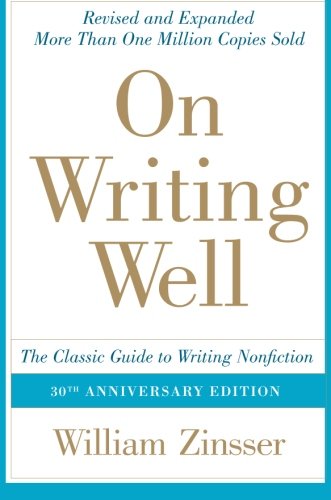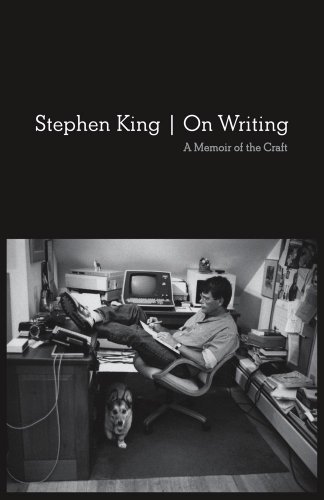Get Out of Bed
For most of my life, getting out of bed has been a struggle. In middle school and high school, this was especially true. My mom would have to poke and prod me for what seemed like hours to get me up each morning. In college, little was different. I would stay up far too late and sleep as much as I could the following day. On more than one occasion, I slept through my 7 or 8 am classes. I lacked the self-discipline and drive to get up early.
Then came real life and with it the responsibility and accountability of my first job. I couldn’t hit the snooze, roll over and sleep in any longer. I had a defined place I had to be each morning. Being late, was no longer an option. This change was good for me. When I had a reason to be up, and a plan for what I was going to do, getting up wasn’t a big deal.
I roll out of bed at 5:30 am, most days. I walk to the kitchen to pour myself a cup of bulletproof coffee and sit down at my computer to write. I write until my wife gets up at 6:30 am. At which time I pour a second cup of coffee and spend thirty minutes to an hour reading God’s word. By 8:00 am I’ve written for an hour, spent 30 minutes to an hour in the Bible and walked our two sweet pups. I’m locked and loaded to start my work day.
I treasure this morning routine. It feeds my soul and helps me win the day. Before I started this routine, I struggled to find the time to write. Attempting to fit writing into any other corner of my day wasn’t working. Too much was going on once the work day started to squeeze writing time into the day.
Then it hit me. I could be selfish at 5:30 am. There would be nothing to distract me. No email, phone calls, or meetings. I could work on exactly what I wanted and that’s exactly what I did. I started getting up early.
No matter how crazy my day gets or what curve balls get thrown my way, I will have spent time working on something personal. The craziness of life no longer remains an excuse for not getting things done. Of course, I miss days here and there. Maybe we were up late shooting a wedding, or traveling with family and I don’t get up as early. Grace abounds in those circumstances. I’m not going to beat myself up for sleeping in, I’ll just make sure I get up the next day. Getting out of bed and tackling a small piece of writing each day has become too important.
Prime the Pump
I enjoy watching good movies on the couch with my wife but would rather read a good book if given the choice. Reading fuels my writing. It gives me ideas to ponder, words to look up and examples to follow. “If you don't have time to read,” Stephen King said, “you don't have the time (or the tools) to write.” I’ve taken King at his word and have come to agree. As a writer, you prime the pump by reading good and sometimes bad writing.
“You are, in fact, a mashup of what you choose to let into your life.” Austin Kleon said, “You are the sum of your influences.” Reading is only one form of input. If you are going to grow as a writer, you are going to need more influences than great books. You’re going to need to fill your mind with exciting and fun experiences, music, and more. It is from this well, your ideas spring.
I call this priming the pump. Before any bit of writing goes out into the world countless hours get spent hiking, listening and reading. Input precedes output. We must tend to the things that influence what we create if we want to improve our creative endeavors.
Do Something Every Day
“What you do each day,” Sonia Samone said, “becomes what you did last year.” The truth is, the things you get done, come down to the small habits and routines you do daily. Change and growth are incrementally obtained. The only way I know to get something written is to sit down and write. There isn’t a hidden formula. You have to actually write.
The things you’re good at in life, take time and practice. Writing is no different. If you want to improve and get more out there into the world, you must consistently write. You need to be writing every day. The time of day isn’t important, time spent writing is.
As I’ve shared, I write daily. Writing daily doesn’t mean publishing daily. I write many things that will never see the light of day, most of it for good reason. For every one good page of writing, I stumble upon, there are dozens of terrible ones. You don’t get to write only good things, often the road to the good runs through the bad along the way.
“You always throw out your first pancake,” Seth Godin said, “so get cooking.” Don’t let a few mangled sentences and dry prose stop you, keep at it. Show up every day committed to your task. Do the work required. If writing is an inspired thing, make yourself easy for inspiration to find. Consistency is inspiration’s best friend; they hang out a lot.
Don’t Think About the Final Product
Few things suck the life out of the act of writing or creative work quite like the tyranny of the finished product. You have this picture of what it’ll look like, what people will say about it and even how it’ll improve your reputation. No wonder you tighten up and have trouble finding the ‘right’ words. You’re so concerned with the final product, that you can’t get anything done.
Pay little attention to your finished product while working. Get your idea on paper or canvas. Vomit it all up on the page, every last piece. Once you’ve got it all out there, you can then go about the work of crafting it. The best way I know to write is to work without the end in mind. I don’t develop any preconceived notions of what completion will mean.
What I’ve given you here is one aspiring writer’s guide. It isn’t definitive or even groundbreaking. It’s a quick run through a few of the habits and routines I use for writing.
1. Get up early
2. Read a lot
3. Write every day
4. Don’t focus on the final product
These four steps have helped me grow and develop as a writer. It's my hope they’ll do the same for you, whatever your creative goals may be.









